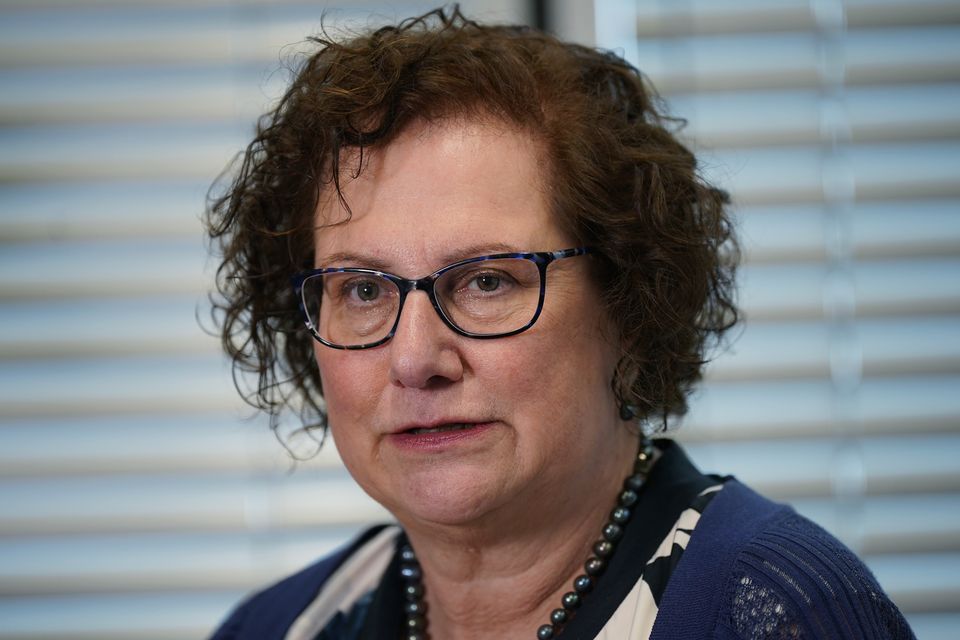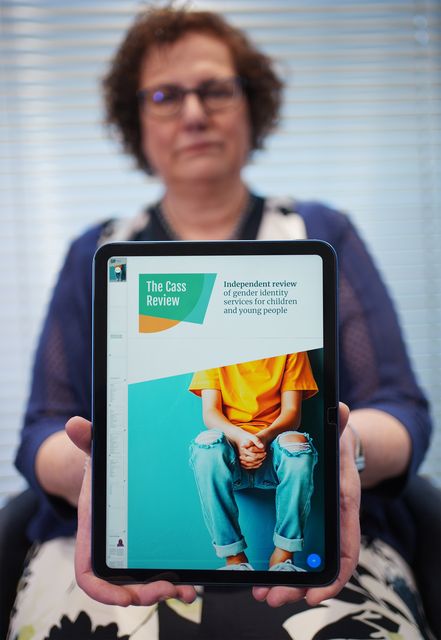Over 100,000 Haitians flee Port-au-Prince the past 30 days
 Over 100,000 Haitians flee Port-au-Prince the past 30 days
Over 100,000 Haitians flee Port-au-Prince the past 30 daysThe United Nations says an estimated nearly 100,000 people have fled the violence in Port-au-Prince in the past month.
There is a political void in Haiti and many can no longer wait as gangs launch regular attacks in the city. CGTN’s Harold Isaac reports.
Haiti’s former capital seeks to revive its hey-day as gang violence consumes Port-au-Prince

Posted Apr 20, 2024
CAP-HAITIEN, Haiti (AP) — They call it Okap, home to Haiti’s kings, emancipated slaves and revolutionaries.
Sitting on the shimmering north coast, the city of Cap-Haïtien was abandoned as a capital during the waning years of the French colonial era and again when the Kingdom of Haiti fell after its king died by suicide and his teenage son was slain.
It was once known as the Paris of the Antilles, and now it is on the brink of becoming what some say is Haiti’s de facto capital as Port-au-Prince crumbles under the onslaught of powerful gangs.
“History repeats itself,” Yvrose Pierre, Cap-Haïtien mayor, told The Associated Press on a recent afternoon.
Business owners, anxious parents and even historic state ceremonies have been relocating here, and that began even before gangs started attacking key government infrastructure in Port-au-Prince in late February. Gunmen have burned police stations, stormed Haiti’s two biggest prisons to release more than 4,000 inmates and fired on the country’s main international airport, which hasn’t reopened since closing in early March.
Right now, “Cap-Haïtien is the only city that connects Haiti to the world,” Pierre said.
Palm trees dot the city that is home to roughly 400,000 people who walk about freely and stay out late. They don’t have to sidestep bodies strewn on sidewalks, run to avoid being hit by stray bullets or flinch if a pop-pop-pop fills the air, confident it’s only fireworks. Such luxuries are absent in Port-au-Prince.
More than 2,500 people were killed or injured in gang violence from January to March across Haiti, a more than 50% increase from the same period last year, according to a report Friday by the United Nations Integrated Office in Haiti. The vast majority of violence is in Port-au-Prince.
Pierre credits Cap-Haïtien’s tranquility to the recent demolition of more than 1,500 homes in the city’s southern outskirts that gangs had infiltrated.
The calm is one of the biggest reasons the city has attracted some of the nearly 95,000 people who have fled Port-au-Prince’s gang violence in the past month alone.
Local authorities recently demanded that all new arrivals register at City Hall to keep track of the influx.
“A lot of people are coming, and there’s a risk of this becoming unbalanced,” the mayor said. “Cap-Haïtien doesn’t have enough resources to welcome everyone who is fleeing violence.”
She said that there are no camps or shelters for the migrants and that the city is struggling to provide food and housing for everyone, with some people forced to sleep in front of churches and grocery stores.
Schools also are overwhelmed.
At the Bell Angelot school in downtown Cap-Haïtien, officials have seen a 10% increase in enrollment and say it is still rising.
“There are too many students,” director Jocelyn Laguerre said.
He said he has had to hire new teachers and add more courses because many children arriving from Port-au-Prince are extremely behind in their studies since gang violence has forced hundreds of schools there to close.
And not all the incoming families are able to pay, which Laguerre said he understands.
“We know what is happening in this country,” he said.
There is no security at Laguerre’s school — a sharp contrast to Port-au-Prince, where heavily armed guards are a fixture at institutions where students of all ages have been kidnapped and gangs have extorted principals.
In general, private guards are largely absent in many businesses across Cap-Haïtien. On a recent afternoon, the clacks of dominoes played on a rickety outdoor table mingled with fans arguing over a yellow card issued during the Real Madrid-Manchester City soccer match, which attracted dozens of people who crowded around the doorways of open-air bars.
No one looked around in fear they might be assaulted, kidnapped or killed.
“There is more peace here than in other cities,” Alfred Joseph said as he sat in a red plastic chair in a nearby lush public park. “For me, Cap-Haïtien has always been the capital of Haiti.”
Despite the charms of the city, it shares many of Port-au-Prince’s familiar woes: poverty, grinding traffic and mountains of garbage that choke the streets, rivers and ocean.
But the absence of violence is enough for Baby Dovelus, who returned to Cap-Haïtien after a student was kidnapped at her daughter’s school in Port-au-Prince.
“It was a big relief,” she said of the move. “I feel good here. It’s my city.”
Others planning to move to Cap-Haïtien include the mother and female cousin of a university student who provided only his first name, John, for safety reasons.
John said he himself moved from Port-au-Prince to Cap-Haïtien after gang violence forced his university to close last month. He flew to Florida on Friday after obtaining a visa to study for a master’s degree in information technology.
He worries about his mother and cousin making the hours-long trip by bus from Port-au-Prince, which is more than 100 miles (200 kilometers) south of Cap-Haïtien. The gangs that control the main road heading north from Port-au-Prince have shot at public buses.
“Everyone is in danger,” he said.
As Haitians continue streaming into Cap-Haïtien, some caution that the only way for the city to really become the capital again is to decentralize the government. All state-related business is currently conducted only in Port-au-Prince.
Patrick Almonor, Cap-Haïtien’s deputy mayor, has hope. He believes that if his city avoids Port-au-Prince’s mistake of concentrating everything in a small area, it’s possible.
“We deserve to be the capital,” he said. “This is about to change.”
Dánica Coto, The Associated Press




